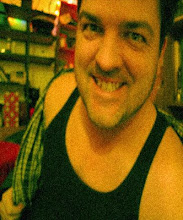So, some ideas.
Stephen Hawking has talked about a theory called Quantum Vacuum. This theory says that constantly, in the nothingness between what exists here in our universe, pairs of particles and matching anti-particles poof into and then immediately out of existence. This is of course, only a theory. Hawking suggests that our current concept of "matter is never created or destroyed" could be incorrect- if two particles appeared in just the right position near a black hole, they could be pulled apart before destroying each other, and leave the universe at X+1 particles, X being how many were already here.
The Big Bang, a cosmic event and the suggested beginning of our universe, has yet to be fully explained, and is also only a theory.
However.
There was much to do over knowing whether the universe was expanding or, would eventually contract upon itself. The thinkng here being that the inital force of the Big Bang was not enough to push everything far enough apart to escape the common gravitational force of all the matter, and woe-is-us if it's contracting, as we'll eventually be all smashed to bits when it all comes back together again.
I've learned I'm not the first to think this, but, my thinking is that before the Big Bang that created our universe, there were a fantastic number of others. And as time progressed, with each step the Bangs got larger and larger due to the increased mass from black hole + quantum vacuum.
We know that we have atoms of certain types, that below that we have subatiomic particles such as quarks, bosons, hadrons, etc, and that these particles all behave in an extremely orderly fashion.
What we also know is that given the correct environment, say, cubic light years of space, and the right conditions, say, the cooling off after an explosion, that certain things will occur. That is to say, in the space we all exist in, the particles which make up everything will tend to do certain things. Stars, planets, comets, and many other forms of stellar bodies will form.
It is the nature of these tiny particles to group together in a grand and orderly fashion.
And if we are lucky, some of the planets will have atmosphere, and there may be snow, volcanoes, fantastically complicated weather patterns- all aspects of the interaction of these tiny particles in space, over time, combined with the effects of gravity.
It is the nature of these tiny particles to behave in complex and often unpredictable ways once grouped together in their grand and orderly fashion.
Furthermore, if we believe in the theory of evolution, then these tiny particles, so grouped and so behaving, can possibly become part of what we call life, and it is possible for this life to evolve over time.
We know all of this. SO?
Well, my conclusion, perhaps not so vast and astounding, is that despite the lack of the information being coded within any atom anywhere, it is the nature of this tiny and unthinking speck to become a complex thinking entity, such as ourselves.
Just as there is much matter in the universe, only some of it is a planet or a star.
Just as there are many planets, only some of them can support life.
Just as there is a vast amount of water, only some of it is a unique and beautiful snowflake-
There are uncountable atoms in the universe, and only some of them are us.
We are the pinnacle of existence in the universe.
My question is: if you can handle the idea that god started the whole Big-Bang process off with the intent being for us to eventually figure this out, what were we supposed to do when we figured it out? Is it that we're here to happily exist as little extensions of the nature of atomic matter? The highest capacity of intellectual being in the universe ought to be content with extended hunter-gatherer behavior? Is there yet some higher level to be reached, and if so, are we the ones to get there, or just stepping stones on the way there?

